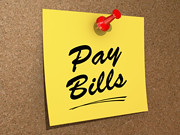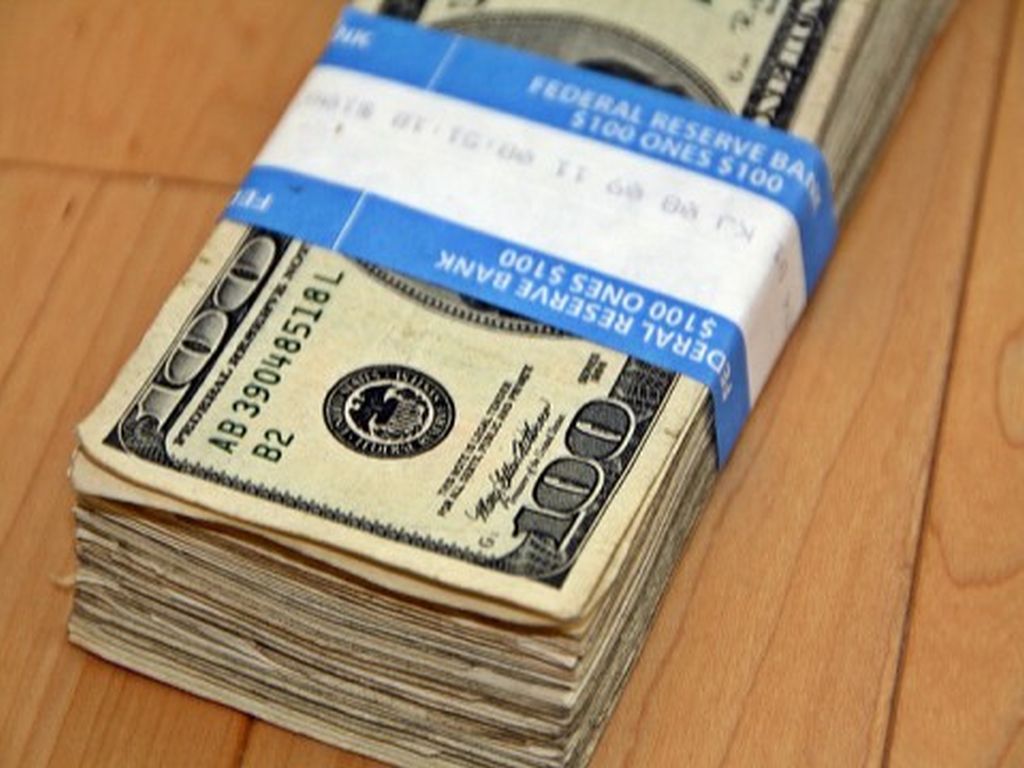Many times, when people are looking for ways to reduce their debt, they go looking for someone else to help them with their problems. The truth of the matter is that every person is capable of figuring their way out of debt if they have a job and are bringing in some kind of money. It may not be easy but it’s better to have some background knowledge to help you move forward.
Below are some tips to employ to help you gradually, or quickly, work your way out of debt.
1. Write down all your debts.

This is always the first step, because, as Dr. Phil might say, you can’t address what you won’t acknowledge. Take one month’s worth of bills and write down what each is, as well as the amount you’re expected to pay. For credit cards, write down the annual percentage rate. Also, write down how much you estimate you spend on things such as food, gas, entertainment, etc. Yes, this is about budgeting.
2. Calculate your monthly net income.
Net income means how much you actually bring home, or have deposited into the bank. Hopefully, it’s the same amount every pay period; if not, then it’s going to be a monthly estimate. There’s a few ways of doing this. If it’s the same amount all the time, multiply that by either 4 if you get paid weekly, 2 if you get paid bi-weekly, or use the exact amount if you get paid monthly.
After you’ve done the first two things, see what the difference is between what you’re bringing home and what your monthly bills come to. Hopefully, you’re on the positive side as far as income goes. If you’re close either way, there’s still hope. If you’re in the ditch, and your expenses outweigh your income, you’re in trouble, but there’s still hope for you.
3. Take a look at the bills you’re paying to see what may be there that you either don’t really need, or can reduce.
For instance, if you have cable and have all the premium channels, you could probably get rid of some of those to reduce your bill. Maybe with your cell phone you can reduce the amount of data you have or remove something else fancy that you might be paying for. These are luxuries, not necessities, and you might miss them, but your wallet will thank you.
Most people find that if they really take a good look at things like this, they can save anywhere from $100 to $300 a month, depending on how much they were spoiling themselves. There might also be workarounds to saving money without losing much on your fun, such as going on Netflix and viewing their programming more often than watching movies and shows on TV.
4. Take a better look at expenses that aren’t monthly bills.

Looking at how you travel to and from work might be a nice starting point in saving a bit of money. If you drive a relatively short distance to work, then it doesn’t make sense to change your driving patterns. However, if you’re driving at least 20 to 25 minutes to work each way, taking the bus will end up costing you less money than driving, although you lose convenience.
Reducing your entertainment budget might be a big deal, especially if you’re eating out twice a week, or every day for lunch. It’s almost better to increase your food bill a little bit to get things so you can take a lunch with you, and maybe eat out once every two weeks, at a less expensive restaurant, instead of weekly. If you’re really in trouble, extra spending to make yourself feel better will only hurt you long term.
These are only examples of the types of things you might want to look at. Since every person lives differently, only you can look at what you’re spending your money on that you might be able to alter.
5. Set up a payment plan.
You’re partially there because you’ve listed all your debts because of #1 above. If you have one and know how to use it, list everything in a spreadsheet program because this will make it easy to track, or at least set everything up. Here’s what you want to do.
Figure out which bills are due and when. Base it off either your one week or two week payment schedule; if you get paid once a month, you can skip this part. Set up a schedule where you know when you’ll pay which bills for at least six months.
You’re probably wondering why. Earlier we figured out what your net income was for 26 weeks. Most people budget for twice a month payments, which means you actually get four extra weeks of payments a year. What you’ll find is that, if you extend your budget for six months, you’ll gain a couple of pay periods, thus earning yourself a little benefit and boost which you’d have never known about if you hadn’t budgeted. This will allow you to move your payments around based on when they’re due; it’s an interesting way to end up paying yourself. 🙂

Something else you’ll do with your payment plan concerns your credit card payments. There are three schools of thought on this one.
The first says to tackle the card with the highest interest rate first. The second says to go after the cards with the highest balances first. The third says to go after the cards with the lowest balances first. Let’s take a look at each of these.
The cards with the highest interest rates add more to your balances on average than other cards. Going after these balances saves money because it saves on the amount of interest you’re getting charged for.
The cards with the highest balances are the ones that make you feel beaten up and overwhelmed. If you go after these balances first, as you see them coming down your stress level will decrease.
Our favorite is going after cards with low balances first. The principle behind this is that everyone works best when they can see successes. The quicker you can pay off a balance, the better you’ll feel, and you’ll be ready to tackle the next card.
The idea behind all three of these ideas is that, whichever one you select, you pay more than the minimum balance, at least 25% more if you can afford it, and stop using all of your cards except possibly one; we’ll come back to that concept. Then, when you pay off the low balance card, you take that payment and apply it to the next lowest card, and so forth. Some of your credit card statements will tell you how much they recommend you pay to be out of debt in 3 years if you stop using that card.
If you have a low balance with a high interest rate, this is a win-win. If your highest balance is also your highest interest rate, you’re heading towards trouble quicker, and you just might have to go after that one first, bringing the balance down to a safer level before going after one of your other cards.
Why do we recommend you keep one card going? If you can use one of your credit cards for small purchases, what you’ll have to pay the next month is relatively low compared to having to pay cash for everything. You don’t use it for everything in a month, just a couple of things. If you put gas in your car weekly, maybe throw one of those weeks onto your credit card. Maybe one week in the month use your credit card for the purchases.
This is extreme, but if you have the space on the card it might help for a quick fix, though we’re weaning you away from credit cards eventually. Also, it helps to show credit reporting companies that you’re consistent in paying an open balance. I’m not sure why they find this more important than just paying everything off and not carrying any credit; go figure.
6. Time to make some phone calls.

We’re not going to recommend that everyone cut up all of their credit cards unless they’re in serious trouble. If you’ve been keeping current on all of your payments while getting deeper into debt, you at least have a chance to help yourself out.
Call all of your major credit card companies (Visa, Mastercard, Discover) and ask for a rate reduction. If you’ve kept up on payments, most of them will offer you a reduction, which can save you a lot of money in fees, and in some ways immediately reduce your payment amount.
Next, if you need a quick infusion of cash and have a car payment, call them and ask if you can delay payment for one month. Most auto loan companies will give owners upwards of 10 times during the life of a loan where they can delay payment a month, though you will pay a very small fee and your loan will be extended a month for each delay. Still, it’s a nice way to get a one month jump on some funds that might help you get over, or caught up, on some delinquencies.
7. Get a part time job.
I know this one everyone hates. The thing is that there’s only so much one can hope to save while trying to cut expenses, and a nice “>part time job might add at least $200 to your cash flow during the month, often much more. Of course if you work a full time job with lots of overtime this might be hard to do, but for most people, that’s not a concern.
There are different kinds of part time jobs. If you can write, you might be able to find some freelance writing work that could earn you some nice pay and you won’t even have to leave the house. Maybe you can find something that fits a particular skill you have.
In Loral Langemeier’s book The Millionaire Maker, she often makes that a part of her recommendations for clients who work with her, and many of them have found that it turns into a better career than the one they’d been doing, makes more money, and they enjoy it more.
The one thing you have to watch out for is if you live in a state that has a yearly state tax. If this is the case you might have to set things up where a certain amount if taken from your pay every pay period instead of relying on a percentage being taken out ahead of time. What often happens is you don’t make enough money during the week for anything to be taken out, and you’ll end up being shocked at tax time when you find out that you actually owe a big lump sum as opposed to getting anything back depending on how much you made.
8. Plan your shopping before you leave home.

Studies have shown that people who go out to buy exactly what they want spend less money because they’re less susceptible to impulse buying. It’s also one of the reasons why it’s always recommended that you eat before you go to the grocery store.
This can work wonders for your budget, especially if you also plan where you’re going based on your knowledge of how much things cost and how far you have to go. Try to have a running list that’s kept in the kitchen and twice a week know exactly where to go to maximize your dollars.
9. Create a money jar for spare change and dollars.
This sounds crazy on the surface but it works wonders. Almost every personal finance book or program you come across will tell you to not only pay yourself before paying anyone or anything else, but to put 10% away. The reality is that not everyone has the means to pop 10% of their income away all the time; it’s just not realistic.
What is realistic is taking your change and tossing it into a jar or some other kind of container that you won’t be compelled to dip into all the time. One of our clients keeps three containers on hand.
One he puts the majority of change he brings home into. Another one he puts the rest of the change I brought home into. The final one is where we put a few extraneous dollar bills he’s pushed into his pocket instead of his wallet.
You’ll be amazed at how fast containers you don’t touch all that often will accumulate money, and it often comes in handy when you most need some additional funds, or if you want to use it for a fun night out here and there. He rolls up coins from the container he put the most change into, and when he reaches a certain amount of paper money he pulls it out and stashes it in a safe place in his house. It’s nice having a little bit of emergency money laying around.
10. Buy consumables in bulk.
Every area has some kind of major discount store; in our area we have two. There are things we’re all going to use consistently, such as toilet paper, soap, paper cups, etc. If you have a place to store these types of items, you can save big money by buying things like this in bulk.
You can save as much as 50% off the cost of these types of products, and that’s without using coupons, which they accept. These stores also sell gasoline, usually at a reduction of between 5 and 10 cents off the cost of gas when compared to everyone else, which is a pretty good deal.
Looking at these tips will help to get you out of debt, though it’s not an easy process and could take a while. Alleviating worries of whether or not you will ever be able to overcome your debt will be a big benefit to you once you see what you’re up against, and you’ll love the feeling of independence that you’ll end up giving yourself. Once you see yourself progressing, you’ll feel happier and have a better sense of calm and accomplishment. Good luck!


